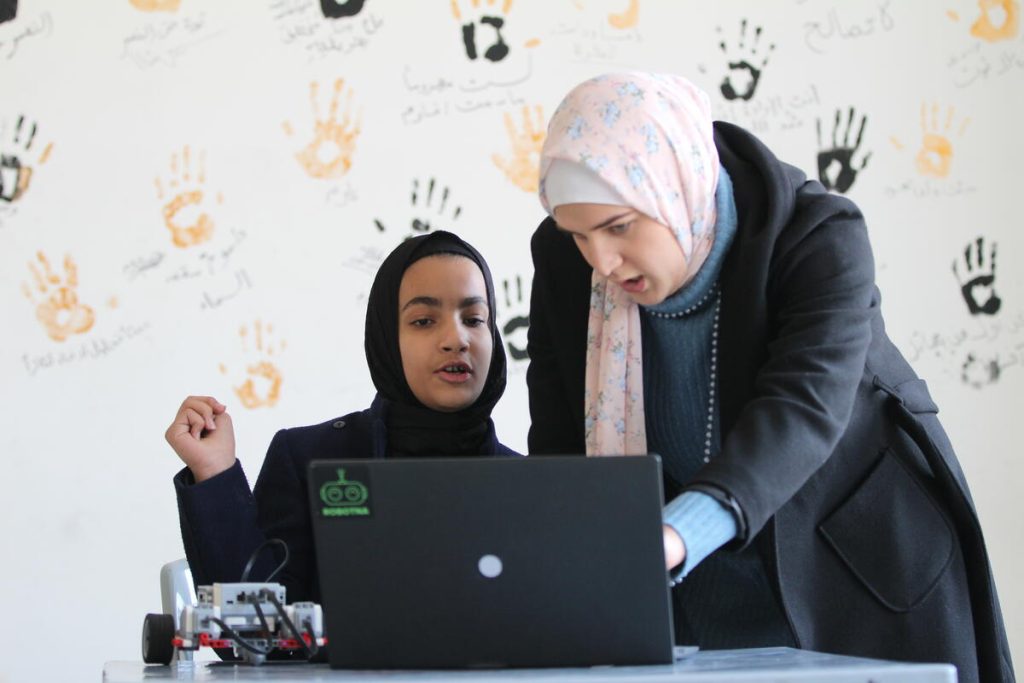In August 2025, the Humanitarian Leadership Academy and Data Friendly Space launched a joint report on artificial intelligence (AI) in the humanitarian sector, representing the first global baseline study into humanitarian AI adoption.
Drawing on insights from 2,539 survey respondents from 144 countries and territories, coupled with deep dive interviews – we created a foundational study of AI adoption across the humanitarian sector together with actionable insights and takeaways.
Explore the insights
Explore how humanitarians engaged with AI in 2025
Discover more
Who this research is for
As the first comprehensive baseline study of AI in humanitarian work, published in August 2025, this research provides essential insights for practitioners, leaders, partners, funders, and collaborators navigating AI adoption and digital transformation decisions.
The team is building on the foundational research through a follow-up pulse survey conducted in January 2026. Insights from 1.7k responses from 120+ countries will be released throughout February 2026. [Watch the webinar]
Explore the 2025 insights
Visit the report website
Including an interactive data visualisation dashboard
View the report website
Read the report in PDF format
Featuring comprehensive insights including key themes and humanitarian AI use cases
Download the report in English [EN]
Download the report in French [FR]
Download the report in Spanish [ES]
Read the initial insights report [PDF]
Released in July 2025, available in English, French and Spanish
Read our executive summary with preliminary findings
Our research is designed with community participation at its core, recognising that meaningful insights about AI in humanitarian work must come from practitioners themselves. Three-quarters of respondents are from the Global South, providing unique insights.
With the 2025 research conducted over a three-month period, the team has worked at pace to deliver this report and supporting campaign because we believe that the timing is crucial given the rapid pace of AI development and radical systemic changes the humanitarian sector faces in 2025.
This research is the first attempt to map AI adoption at individual and organisational levels globally, complementing existing sector initiatives on ethical AI processes.
The global engagement in the research – from individuals with a broad range of attitudes and experiences of AI in humanitarian work – shows a strong appetite to learn and align on values and standards.
Coordinated efforts, underpinned by data and diverse voices like those in this research, will enable actors across the sector to move forward together. We share a collective ambition to find contextually-appropriate, ethical AI solutions that uplift humanitarian efforts supporting crisis-affected communities.
The research team will continue to build out these insights to support and mobilise the sector to forge a path ahead in the adoption of AI technologies.
How you can engage in this research and follow-up content
Use the report and supporting user personas as a discussion tool in your teams or organisations: The aim of this research and launch event is to spark conversations across the sector and beyond. We encourage the report to be used as a learning and discussion tool in organisations and to help shape approaches to AI and digital transformation.
Webinars and online events
Report launch event (August 2025): We were delighted to host an online report launch event to highlight key findings and discuss their potential implications together with an expert panel (C. Douglas Smith, Dr Cornelia C. Walther and Ali Al Mokdad) and attendees. A recording, discussion transcript and slides are available on the event webpage.
Humanitarian AI: Lessons learned, trends and opportunities for 2026 (January 2026): We were pleased to host a webinar in partnership with NetHope together with an expert panel (Esther Grieder, Mercyleen Tanui, Michael Tjalve, Daniela Weber). A recording, discussion transcript and slides are available on the event webpage.
Beyond the hype: Ground truth on AI across the humanitarian sector (26 February 2026): In this community-centred session, we presented key insights from 1,729 humanitarians from 120+ countries who responded to the January 2026 Humanitarian AI pulse survey, offering a vital check-in on how practitioners are experiencing AI today. This was followed by discussion with an expert panel (Rebecca Chandiru, Liz Devine, Timi Olagunju, Nayid Orozco Bohorquez). A recording, discussion transcript and slides are available on the event webpage.
We plan to host further webinars and podcasts to continue this conversation with a diverse range of speakers. Please contact us if you have suggestions for discussion themes and speakers.
Podcast collection
From the launch of the project (May 2025): Tune in to a Fresh Humanitarian Perspectives episode recorded at the start of this initiative and to hear why the project co-leads decided to collaborate – and why they believe that every humanitarian’s voice matters in shaping AI for the sector.
Post-report launch (August 2025): Ka Man Parkinson and Madigan Johnson joined the Intelligence Explosion podcast as guests to discuss the research and potential implications in more detail. Listen
Deep dive six-part Humanitarian AI follow-up podcast series (September/October 2025): Featuring expert guests discussing the research themes and sharing global and African perspectives. Each episode includes transcripts and glossary of technical terms used in the conversations. View the podcast series webpage
- Episode 1: How are humanitarians using AI: reflections on our community-centred research approach – with Lucy Hall, Ka Man Parkinson and Madigan Johnson. Listen
- Episode 2: Bridging implementation gaps: from AI literacy to localisation – in conversation with Michael Tjalve. Listen
- Episode 3: Addressing governance gaps: perspectives from Nigeria and beyond – in conversation with Timi Olagunju. Listen
- Episode 4: Building inclusive AI: indigenous knowledge frameworks from Kenya and beyond – in conversation with Wakanyi Hoffman. Listen
- Episode 5: Localising AI solutions: practitioner experiences from Rwanda – in conversation with Deogratius Kiggudde. Listen
- Episode 6: Developing AI literacy: a matter of trust, critical thinking and localisation – in conversation with Meheret Takele Mandefro. Listen
Launch of pulse survey (January 2026): Ka Man Parkinson, Lucy Hall and Madigan Johnson from Data Friendly Space discuss the January 2026 pulse survey shaping the next phase of this humanitarian AI research. Listen
Articles
Research report companion article (July 2025): In this short article, research co-lead Lucy Hall outlines the history of artificial intelligence in humanitarianism. Read
Opinion piece (October 2025): Following his participation as an expert panellist at the launch event, Ali Al Mokdad shares his reflections on the evolving waves of AI and the deeper element of transformation that underpins them. Read
Reflection piece (November 2025): In this personal reflection piece, research co-lead Ka Man Parkinson charts a six-month research and learning journey into the adoption of artificial intelligence (AI) across the humanitarian sector. Read
Opinion piece (November 2025): Should we use AI-generated imagery in humanitarian communications? Spotlight on research by Gülsüm Özkaya. Read
Connect with us. This research is intended to be a springboard for further dialogue and action within the humanitarian sector and beyond. We aim to convene, connect and collaborate for shared learning and discovery – we welcome your comments and suggestions as we continue this humanitarian AI journey together.
Humanitarian Leadership Academy
info@humanitarian.academy
Data Friendly Space
hello@datafriendlyspace.org



